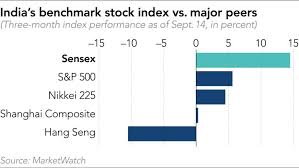Understanding India Capital: The Importance of New Delhi

The Significance of New Delhi as India’s Capital
The capital of India, New Delhi, is not only the seat of government but also a vibrant hub of culture, history, and economic activity. Established as the capital in 1911, New Delhi was designed by British architects Edwin Lutyens and Herbert Baker. Today, it stands as a testament to India’s rich heritage and its aspirations for development on a global scale.
Historical Context
New Delhi replaced Kolkata (formerly Calcutta) as the capital to facilitate better administration over British India. The area was chosen for its strategic location and better climate. Following India’s independence in 1947, New Delhi remained the capital, symbolising the country’s unity and progressive governance.
Political Importance
As the seat of the Indian government, New Delhi houses key institutions such as the Rashtrapati Bhavan (presidential residence), the Parliament of India, and the Supreme Court. Decisions made in New Delhi resonate across the entire nation, influencing the policies that govern approximately 1.4 billion people. The robust political landscape, led by a diverse array of parties, contributes significantly to the democratic fabric of the country.
Cultural Significance
New Delhi is also a melting pot of cultures, reflecting the diverse customs and traditions found across India. The city hosts several cultural festivals, art galleries, and museums, which promote a sense of community and celebration of heritage. Landmarks such as India Gate, Humayun’s Tomb, and Qutub Minar are not only tourist attractions but also serve as important symbols of India’s historical narrative.
Economic Developments
In recent years, New Delhi has witnessed significant economic growth. The city is a major centre for commerce, with industries ranging from information technology to telecommunications and tourism. Government initiatives, such as ‘Make in India,’ aim to boost manufacturing and innovation, positioning New Delhi as a global business hub. Furthermore, ongoing infrastructural development projects are set to enhance connectivity and local economies.
Conclusion
New Delhi’s role as the capital of India extends beyond mere governance; it is a dynamic city that encapsulates the essence of India’s historical journey and contemporary aspirations. As India continues to rise on the global stage, New Delhi will undoubtedly play a pivotal role in shaping the nation’s future, reflecting its heritage while embracing innovation and progress. The city’s evolution will remain crucial for policy-makers, businesses, and citizens alike as they navigate the complexities of a rapidly changing world.









